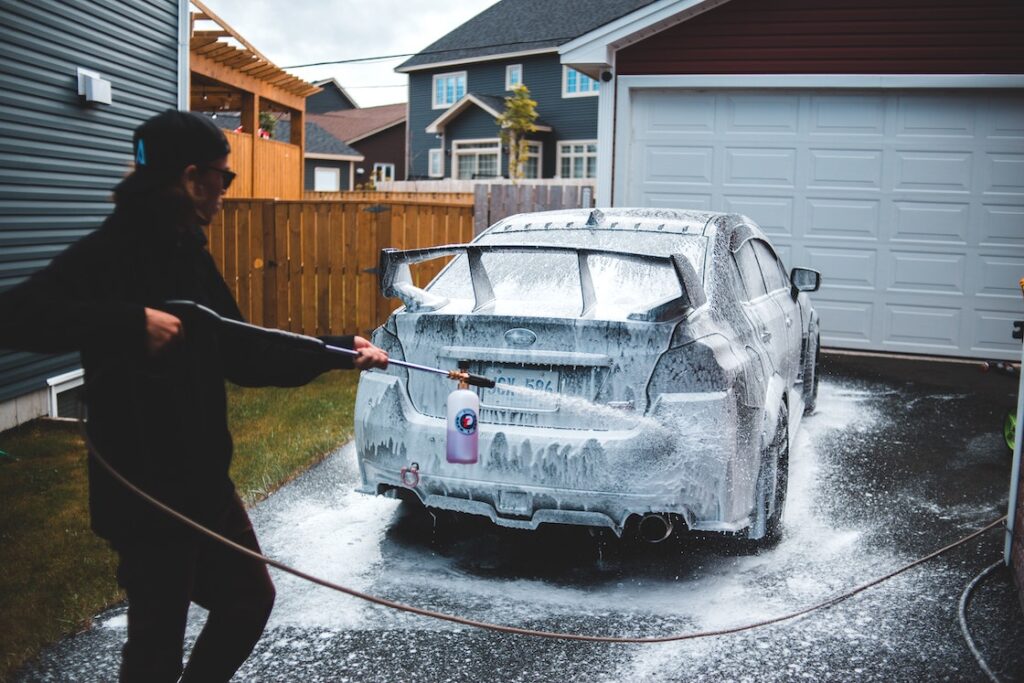As a homeowner, there are quite a few effective techniques to keep the humidity in your garage under control. If you allow your garage to become too damp and muggy, you’re asking for a major mold problem to develop.
Fungi like mold thrive in moist, dark areas, which means your garage is a perfect environment for it to flourish if you don’t control the humidity level. Plus, having excessive humidity in your garage can result in your tools, storage cabinets, and even vehicles rusting faster.
Why Do Garages Become Humid?
Because garages are typically sealed up tightly, it’s very common for the air to become stagnant and filled with moisture. That said, there are certain circumstances that may lead to your home’s garage becoming even more humid than average, making it even more susceptible to the growth of mold and other funguses.
- Plumbing leaks letting water in
- Lack of insulation in the garage door and walls
- Open cracks or crevices letting in rainwater
- Melting snow from your car tires increasing moisture levels
- Running appliances in the garage that use moisture
- Lack of ventilation
Effective Ways To Reduce Your Garage’s Humidity
Even if you’ve never had a mold problem in your garage, it may be a good idea to put a few of these tips into practice. Rather than waiting for the humidity level of your garage to become an impactful problem, you can nip it in the bud by taking a few proactive measures.
1. Invest in a Dehumidifier
Sometimes, the most obvious solution can be a very effective one. When you need to reduce the humidity of your garage, why not utilize the equipment that’s made specifically for reducing humidity? Dehumidifiers do an excellent job of removing moisture from the air, and running one in your garage will greatly reduce the likelihood of a mold infestation. These systems come in a variety of different sizes and types, so you shouldn’t have any problem finding one that’s a good fit for the specifics of your garage.
2. Improve the Ventilation
If your home’s garage is properly ventilated, it’s far less likely that the humidity will ever get out of hand. When the air in the space is consistently circulating and cycling out, any moisture-heavy oxygen will likely be gone before it has the chance to settle. As a result, the air in your garage will not only be drier, but it will be fresher and cleaner as well.
There are a few methods you can use to improve your garage’s ventilation. If the garage features windows, it may be as simple as regularly opening them and letting the humid air be replaced. If there aren’t any windows, you could install an exhaust fan or vents instead. What’s important is that one way or another, humid air is consistently being given the means to exit the garage.
3. Have Your Plumbing Inspected
In some cases, hidden plumbing leaks will cause garages to become more humid without the homeowners even realizing it. Leaky pipes and other plumbing problems are pretty common, and even if you aren’t aware of them, they can allow a significant amount of moisture to accumulate in your garage.
It won’t always be immediately obvious that a plumbing problem is occurring, though, so it’s important to have your plumbing system periodically inspected. If you can, hire professional plumbers to check out your home’s pipes, fixtures, and appliances on a yearly basis. That proactivity can save you a lot of money and hassle in the long run and potentially spare you from a major mold problem.
4. Control the Temperature
Excessive garage condensation is a common problem, particularly because it’s an area of the home that’s especially likely to get chilly. When it does, the moisture in the air comes in contact with those cold surfaces, and suddenly there’s water from condensation all over the room. You can combat this by making an effort to keep the garage relatively warm during the fall and winter months. The easiest way to do this is to run a heater in your garage whenever the temperature drops outside. You should avoid using a propane heater for the task, as they emit significant amounts of water vapor, but there are several other types of garage heaters on the market that will handle the task wonderfully.
5. Check the Drainage
It’s inevitable that moisture will sometimes find its way into your garage, even if you take measures to prevent it. As long as it’s a reasonable amount of water and your drainage system is doing its job, though, this is nothing to worry too much about. However, if the gutters, downspouts, or drain covers are obstructed, that liquid is going to start accumulating, and the humidity level of your garage is going to rise. To avoid this, make a point to regularly check each component of your garage’s drainage setup to ensure that it’s in good shape and functioning properly.
It’s worth noting that some garages don’t have gutters or downspouts, and those garages are typically more susceptible to drainage problems and moisture buildup. If you really want to go the extra mile, you can hire contractors to add these components to your home’s garage. It probably won’t be cheap, but it could potentially make a big difference in the long run when it comes to experiencing moisture-related problems.


